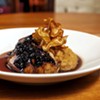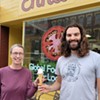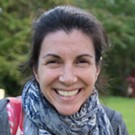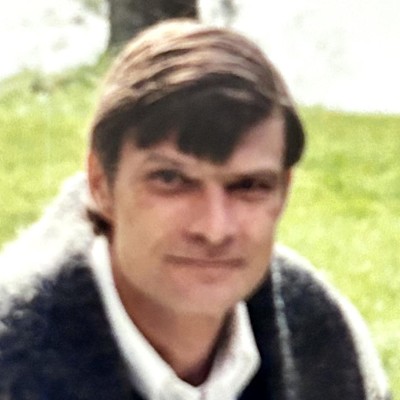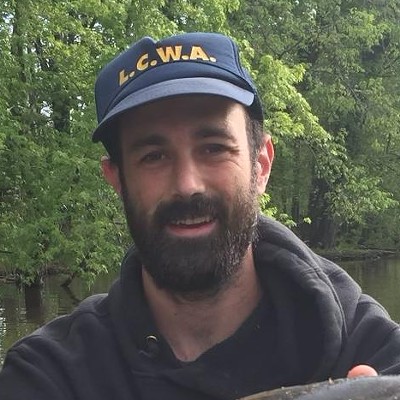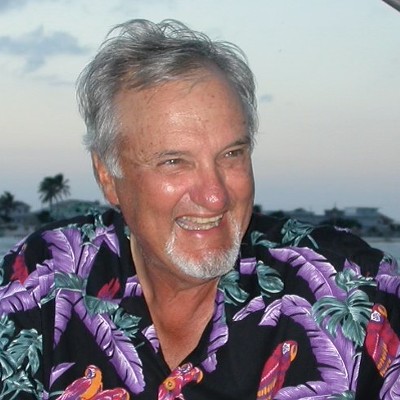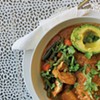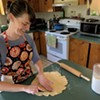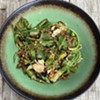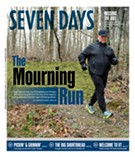click to enlarge 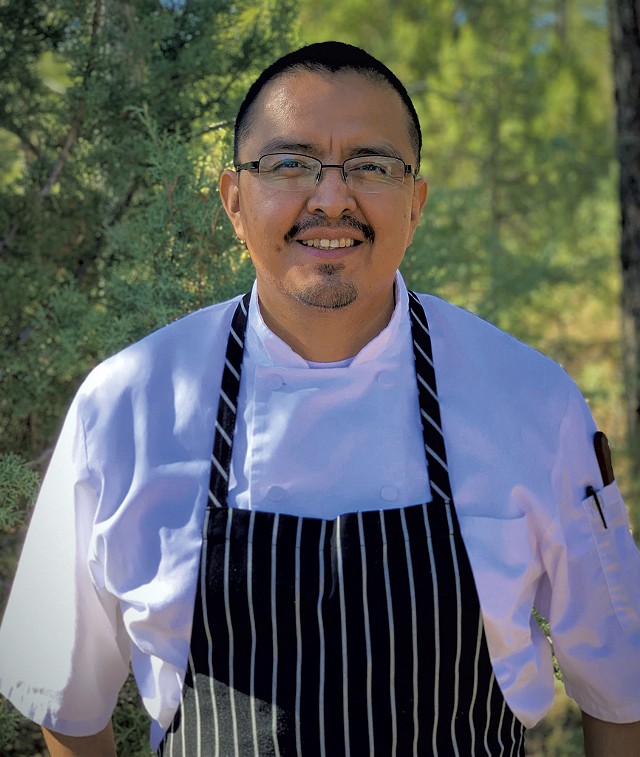
- Courtesy Of Ari Carter Craig
- Nephi Craig
Nephi Craig is White Mountain Apache on his mother's side and Diné (Navajo) on his father's. He grew up mostly in Whiteriver, Ariz., on the Fort Apache Indian Reservation, where he baked cookies and brownies with his mother from a young age.
"We didn't have a lot of money," Craig, 42, said in a recent phone interview. So, he packaged and sold the home-baked treats to neighbors. "It gave me a sense of worth."
At 18, Craig left the reservation to attend Scottsdale Community College, where he earned a culinary fundamentals certificate. By then, he said, "I was very conscious of the fact that I was overusing [drugs and alcohol]." More than a decade into his cooking career, "I would finally put it away when I was 31," he said.
In 2008, after Craig had worked all over the world, from Brazil to Japan, "I decided to come back to the rez," he said. He took a job at the tribal-owned Sunrise Park Resort in Greer, Ariz. "I walked into the kitchen, and I was surrounded by nothing but White Mountain Apache and other Natives," he recalled. "That's what I'd been searching for all over the world: a place that felt familiar, felt like home, felt safe."
Craig's current project marries his professional and personal experiences. As nutritional recovery program coordinator for the White Mountain Apache Tribe's Rainbow Treatment Center, Craig serves as executive chef of Café Gozhóó in Whiteriver, where he runs a culinary training program for tribal members in recovery from substance use disorder. Gozhóó is an Apache word that means beauty, harmony, love and happiness, he explained. The café doubles as a community restaurant and will celebrate its first anniversary on October 28.
On October 4, Craig will give the inaugural online lecture in the distinguished speaker series hosted by the Osher Lifelong Learning Institute of the University of Vermont. His talk is titled "The Psychology of Indigenous Foods and Eating." As Craig said in the 2020 movie Gather, "It's through foodways that we engage in a recovery from historical trauma and promote Indigenous healing and self-determination."
Craig talked with Seven Days from Victoria, British Columbia, where he was spending a few days at the University of Victoria, lecturing and meeting with Native cooks, farmers, fishermen and hunters.
click to enlarge 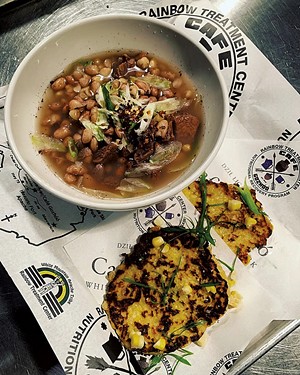
- Courtesy
- Dijizhi, a corn and bean soup with beef, with yucca blossoms and Nada'ban, Apache corn bread
SEVEN DAYS: I asked Jessee Lawyer, a Vermont chef with Abenaki heritage, what he would ask you. His question was twofold: "How important is reconnecting to the land in repairing our traditional food systems, and how do we as Native people heal and strengthen ourselves through food?"
NEPHI CRAIG: One of the highest priorities is reconnecting to the land, not just for food systems but for personal Indigenous health. For us, as Native peoples, that connection to the landscape provides so many messages, so many lessons, so many experiences that it builds us.
The doorway for health and healing through foodways is wide open. If we remain students of our landscape and students of our experience and relationship with that landscape, every single person is going to have similar but different treatment. Really listening to your cultural intuition, following your heart and passion, and reconnecting with the land will provide such dynamic and amazing place-based healing.
SD: In writing about fry bread, you call it "deceptively delicious" and acknowledge your fond memories of the fried dough that many people identify with Native American food. You also describe it as "a taste of confinement and oppression" because fry bread was originally made from government food rations after Indigenous foodways were purposefully destroyed. What could replace it as a positive icon of Native food?
NC: I hope my kids, when they grow up and they go to the grocery store and see zucchini, tomatoes, chocolate, sunflowers, cranberries, chiles of all sorts and beans of all types, I hope that they see those as Indigenous foods. Those foods came from Indigenous people and Indigenous science, even though they're labeled Italian squash, Asian chiles and Spanish paprika.
We really changed the world, and when we see that, we reclaim a little bit of our power. We feel like, Yeah, our ancestors were badasses. Our ancestors were scientists. Our ancestors were expert farmers. Our legacy still resounds globally and supports health globally.
They're gonna say, "I'm gonna eat some tomatoes. You know, that's Native food, man."
SD: You've cooked at a five-star restaurant in Phoenix and offered $95 tasting menus that paired Indigenous ingredients with European technique. Now you're doing something completely different. Tell us about Café Gozhóó.
NC: We're an extension of the Rainbow Treatment Center. Being a part of a team, finding meaning in life or creating meaning in life, mending and cultivating relationships, creating new behaviors, and creating new experiences are all pillars of relapse prevention. Those are all happening when someone enters the kitchen there.
So many people across Native communities have substance abuse and addiction in their lives. Society has stigmatized it. It's like [there's] something morally wrong with someone. But addiction is trauma-based, and when you look at our legacy of historical trauma — the interruption of our relationship to the land, parenting, ceremony, identity — it's no wonder.
I hope that people can revitalize or establish a relationship for themselves and food. It's a very intimate piece of healing. I hope that it can help stabilize and anchor people. Cooking and food won't keep people sober, but it's a part of their support system.
Harvesting wild tea, cooking over fire with your family, growing corn again for the first time in generations — when you practice and do the food work, I feel like it's a direct path to decolonization.
This interview was edited and condensed for clarity and length.





































